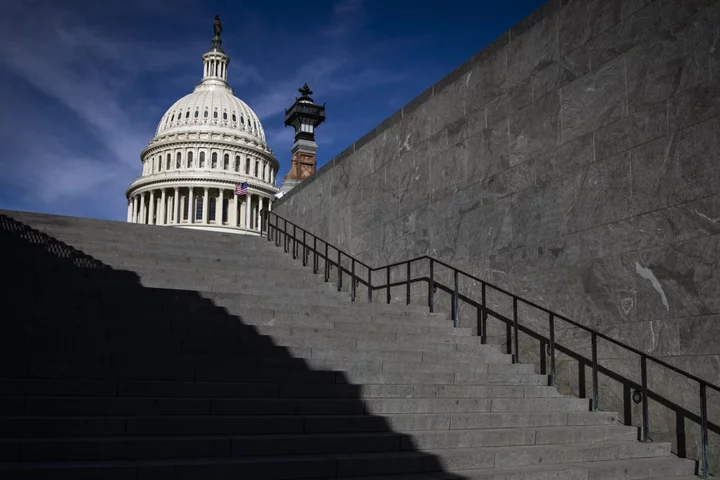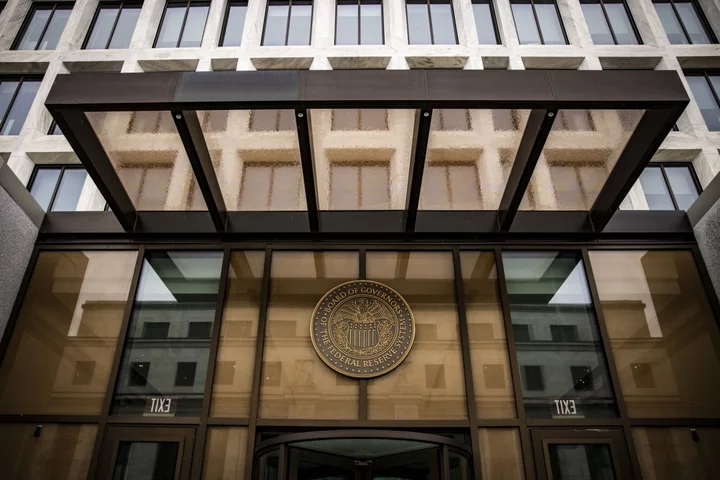Israeli Prime Minister Benjamin Netanyahu left hospital Monday after having a pacemaker installed and is expected to attend a parliament vote on a judicial change that’s split the country and drawn mass protests.
The bill, which will curb the power of judges to overrule government decisions and appointments if it becomes law, has thrown Israel into an unprecedented domestic crisis that’s threatening to undermine its economy and security.
Netanyahu’s government, the most right wing in Israeli history, argues that the courts have grown too powerful and are captured by the left. But its plans have drawn fierce opposition from a broad swath of Israel’s establishment, from tech entrepreneurs to military reservists, who say they’ll undermine the country’s democratic checks and rule of law.
Critics also worry that Netanyahu, who is fighting a long-running fraud and bribery case, will use a weakened judiciary to avoid jail time.
The last two of three readings on the proposed law is due to take place in Israel’s Knesset Monday. With Netanyahu’s right-wing coalition holding a majority of 64 in the 120-seat house, the bill is expected to pass comfortably despite the political upheaval it’s stirred.
The standoff over the law has come to represent a broader battle over the nation’s very identity and what it means to be a Jewish democracy. Opponents fear the law is the first step toward a religious autocracy, supporters see it as permitting their once-marginalized voices to be heard.
Long buoyed by a tech sector resilient to war and regional turmoil, the shekel has weakened 6.3% against the dollar in the six months since Netanyahu first mooted the plans, unleashing months of protests.
Bracing for Protests
Hundreds of thousands were expected to join demonstrations planned for Monday. A business forum representing Israel’s largest companies has declared a strike. It’s been joined by about 150 tech companies, while Bank Hapoalim said it would allow its employees to miss work to participate in protests that have attracted members of the political and business elite.
“I came to take part with our people, so that we could be saved from a bad moment, the likes of which has not been seen since the establishment of the state,” former President Reuven Rivlin, who was a member of Netanyahu’s Likud party, said in a speech Sunday night.
Over two-thirds of tech companies have taken financial and legal steps to safeguard their assets since the reform plans were unveiled in January. A report by Startup Nation Central, which tracks the tech sector, said 22% of 500 companies surveyed moved funds abroad and 8% moved their headquarters.
More than 10,000 reservists joined 1,200 pilots from the air force threatening to suspend service if the bill goes through without wide public consensus. They’ve been supported by dozens of top former security officials, alarming the military leadership.
“If we do not have a strong and unified army, if the best do not serve in the military, we will not be able to exist as a country in this region,” Chief of Staff Lt. Gen. Herzi Halevi said in a letter to soldiers published Sunday.
Those risks, magnified by growing tensions with Iran and its proxies on Israel’s borders, prompted Defense Minister Yoav Gallant to say Friday he was looking for a way to “reach a wide consensus” before the final vote.
Last-Ditch Talks
President Isaac Herzog, who returned from a visit to the US on Sunday, has sought to mediate a last-minute compromise, meeting with Netanyahu and opposition leaders Yair Lapid and Benny Gantz in quick succession.
Lapid agreed to Herzog’s proposal of a 15-month freeze of the judicial overhaul, Israeli media said. There was no immediate comment from Netanyahu or Gantz, although some reports said the government could agree to a three-month hiatus.
The government’s approach has drawn rare criticism from the US and think tanks have warned that Israel’s ties with its staunchest ally could be damaged if it pushes through the changes in the face of widespread opposition.
“Given the range of threats and challenges confronting Israel right now, it doesn’t make sense for Israeli leaders to rush this — focus should be on pulling people together and finding consensus,” US President Joe Biden told Axios in a statement.
The measure set to be passed Monday will remove the ability of the courts to strike down government policies deemed “unreasonable.”
It was originally part of a larger package of changes and it’s not clear if the government will seek to put forward other measures. Netanyahu has said the government will not take any further steps without first seeking a political consensus. But National Security Minister Itamar Ben Gvir, one of his most radical partners, has said the bill is just “the first course.”
Religious Right
Secular Israelis are particularly alarmed by changes they say will strengthen the religious right, not just putting off international investors, but making the country a less attractive place to live and work, especially for women. To form a government following last year’s election, Netanyahu brought into government politicians who for decades were considered to be on the extreme fringes of public life.
The protests have drawn huge numbers of women, some dressed as the red-hooded “handmaidens” of Canadian novelist Margaret Atwood’s dystopian tale, warning against any erosion in democratic rights.
A clip circulated on Twitter showed Idit Matot, director of the surgical division at Tel Aviv Medical Center and a professor of medicine at Tel Aviv University, break into tears as she contemplated a future under the religious right.
“I don’t really see a future here,” she said. “I don’t want my granddaughter to grow up in an environment where women have no status, to grow up in a nation of tyrants.”
--With assistance from Marissa Newman.









